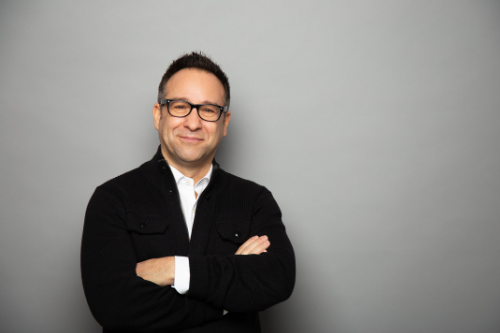

Marc Lipman, president of Lloyd’s Canada, has delivered a hard verdict on the insurance industry’s performance during the COVID-19 pandemic, stating there were “too many low points” from both carriers and brokers in this immensely challenging period.
“If you ask consumers before and after the pandemic if they think they get value out of their insurance purchase, I don’t think the stats would trend in the right direction for us,” said Lipman (pictured), who is also the attorney-in-fact (AIF) for Lloyd’s Underwriters. “Some have said there’s even an existential question of: ‘Will insurance continue to be as relevant as it ought to be?’ And we need to work on that.”
“It’s a question of relevance,” the Toronto-based Lloyd’s boss stressed, in terms of insurers bringing out products and services that consumers really need – and, just as important, products that consumers understand.
“We have to simplify coverages and simplify wordings, so people understand what business interruption means,” said Lipman, referring to the steady stream of business interruption (BI) lawsuits that have occurred worldwide during COVID-19 after insurers refused to cover losses tied to mandatory lockdowns, stating that BI policies were not designed or priced to cover pandemic damages.
Read next: What’s in store for the IBAO in 2022?
That has presented quite a considerable PR challenge for the industry, and legal jurisdictions around the world are still determining whether insurers should be made to pay for COVID-related BI claims. Furthermore, the extent of the reputational damage triggered by the COVID-19 BI saga remains to be seen.
As Lipman put it: “It’s a black eye on the industry. We can all stand behind the wordings of our particular policies, but we didn’t deliver or meet customer expectations. That’s a shared responsibility between carriers and our broker partners [and] we need to do better. I think that’s certainly a lesson Lloyd’s learned coming out of the pandemic.”
Pandemic-related litigation isn’t the only force impacting the industry’s reputation at the moment. When the pandemic struck, the commercial insurance marketplace in Canada had already hardened quite significantly after a long period of increasing claim activity, lower investment returns, and lower profits within the industry.
This caused greater scrutiny among multinational insurers about where and how they put their capital to work in markets around the world, and some capacity started to retract from the Canadian marketplace. Then the COVID-19 pandemic hit, and the resulting economic recession has only made matters worse.
At the same time, some of the Lloyd’s market representatives, who were catering to higher-risk businesses, have retreated from the Canadian marketplace for various reasons (e.g. accounting standards), making it harder for some Canadian businesses and their brokers to find secure adequate insurance.
Read more: Lloyd’s enters Net-Zero Insurance Alliance
“Let’s be clear that it’s not a problem that’s unique to Lloyd’s,” said Lipman. “All carriers, wherever they’re based, including Canadian ones, underwrite to a profit. We all need to do that to be there for our clients. We all aspire to do that. And it’s important because that enables sustainable underwriting and insurance products for our customers.
“Lloyd’s is a marketplace; it’s not a single mind. It is 80 different carriers in a sense, all with their own particular risk appetite. Starting before, but certainly in 2018, Lloyd’s had a singular focus on profitability. That had nothing to do with the pandemic, and the focus didn’t change during the pandemic.”
He went on to reiterate that there will “always be capacity from Lloyd’s” for Canadian clients with strong risk management practices, regardless of how challenging their needs are.
“There will always be capacity from Lloyd’s for clients who understand risk mitigation, who exercise the right kind of practices, controls, safety, in whatever industry they participate in,” said Lipman. “And we work with all of our MGA partners to provide particular facilities to help particularly challenged industries as well.
“But at the end of the day, we have to make money in order to still be there to insure the next risk tomorrow. So, while we want to be sensitive and communicate our risk appetite early so people understand and can adjust and adapt, we don’t apologize for trying to earn a reasonable profit.”
